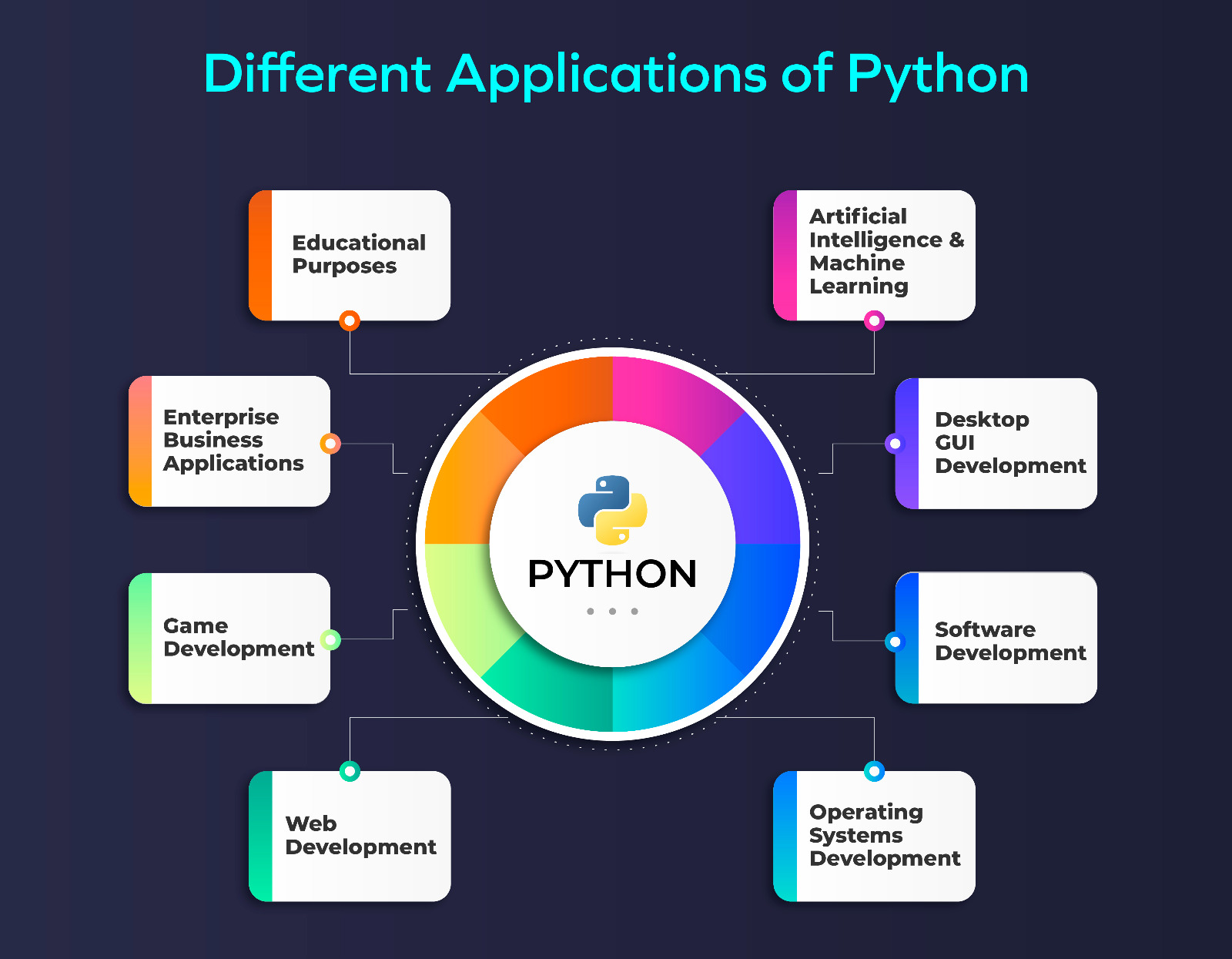
Python development has been around for quite a while and is getting even more popular. The combination of Python’s versatility, ease of use, and strong ecosystem of libraries and frameworks has contributed to its remarkable growth and widespread adoption, positioning it as one of the most influential and popular programming languages in the industry.
Google uses Python across the board such as for app engines, search engines, and robotic projects. Netflix uses Python in data analytics and reporting. These are just a couple of the top guns firing on the side of Python.
Many software development companies like iTech, choose Python for programming applications for their clients. We have developed applications using Python for semantic search engines for document automation with AI technology as well as CAD Document Processing
What is Python?
Python is a high-level, interpreted programming language known for its simplicity, readability, and versatility. It was created by Guido van Rossum and first released in 1991. Yes, that’s over 30 years back, and still going from strength to strength. He named the language after the movie character Monty Python from a BBC TV series.
Python development emphasizes code readability through the use of indentation and clean syntax, which reduces the complexity and makes it easier to write and understand code. It is a general-purpose programming language, meaning it can be used for a wide range of applications and domains. It provides support for multiple programming paradigms, including procedural, object-oriented, and functional programming. Since it is open source, it has a large and active community of developers who contribute to its growth, create libraries, frameworks, and tools, making it a popular choice for both beginners and experienced programmers.
Why is Python still the go-to programming option?
When it comes to programming language, the choice usually comes down to Python for web development as well as software development. Also, the large open-source community has created extensive reusable code, and frameworks and acts as support for developers. For instance, Django is a Python framework that is designed by experienced developers and is now made available for others to accelerate application development.
Here are the other reasons why applications of Python will continue to be popular:
1. Readability and Simplicity: Python has a clean and readable syntax, which makes it easier to write and understand code. It emphasizes code readability, with its use of indentation and a reduced amount of syntax clutter. This simplicity reduces the learning curve for new programmers and promotes maintainability, allowing developers to write efficient and understandable code.
2. Large and Active Community: Python has a vast and active community of developers who contribute to its growth and popularity. This community creates a rich ecosystem of libraries, frameworks, and tools, making it easier for developers to solve complex problems. The Python Package Index (PyPI) hosts a vast collection of open-source libraries that can be easily integrated into projects, saving time and effort.
3. Cross-Platform Compatibility: Python is a versatile and popular programming language that runs on multiple platforms, including Windows, macOS, Linux, and various other operating systems. This cross-platform compatibility allows developers to write code once and run it on different platforms without major modifications, reducing development time and effort.
4. Extensive Libraries and Frameworks: Python offers an extensive range of libraries and frameworks that enable developers to accomplish various tasks efficiently. Libraries such as NumPy, pandas, and matplotlib provide powerful data manipulation and analysis capabilities. Frameworks like Django and Flask simplify web development, while TensorFlow and PyTorch are popular choices for machine learning and artificial intelligence applications.
5. Productivity and Time-to-Market: Python’s simplicity and the availability of high-quality libraries and frameworks contribute to increased developer productivity. Python’s extensive standard library and third-party packages provide pre-built modules and functions , allowing developers to focus on solving specific problems rather than reinventing the wheel. This results in faster development cycles and shorter time-to-market for software projects.
6. Ease of Integration: Python offers seamless integration capabilities with other programming languages such as C, C++, and Java. This allows developers to leverage existing codebases written in different languages, making it easier to integrate Python into existing software systems.
The versatility of different applications of Python
Python can be used by a web developer to build a website but the same Python can be used by a data scientist to manipulate large chunks of data and create data visualizations. This versatility is reflected across various software development domains and a wide range of applications.

Python for Web Development: Python is widely used for web development similarly Python for app development is just as popular. Frameworks such as Django and Flask are popular choices for building scalable and robust web applications. Python’s simplicity and extensive libraries make it well-suited for handling web-related tasks.
Data Analysis and Visualization: Python provides powerful libraries like NumPy, pandas, and matplotlib, which are extensively used for data analysis, manipulation, and visualization. These libraries, along with tools like Jupyter Notebook, are widely used in data science and analytics projects.
Machine Learning with Python: Python has gained significant popularity in the fields of machine learning (ML) and artificial intelligence (AI). Libraries like TensorFlow, PyTorch, and sci-kit-learn offer efficient and comprehensive tools for ML and AI development. Python’s ease of use and rich ecosystem make it a preferred choice for training models, natural language processing, computer vision, and more.
Also Read: Why Businesses are Moving from RPA to Intelligent Automation?
Scripting and Automation: Python’s simplicity and versatility make it an excellent choice for scripting and automation tasks. It is commonly used for writing scripts to automate repetitive tasks, perform system administration, build command-line tools, and create workflows. iTech has used Python in the end-to-end automation of invoice processing for our clients. Visas.AI, the first of its kind Artificial Intelligence platform for immigration attorneys in the USA also is developed by iTech using Python.
Desktop Applications: Python can be used for developing desktop applications with frameworks like PyQt and Tkinter. These frameworks provide tools and libraries for creating graphical user interfaces (GUIs) and building cross-platform applications.
Game Development: Python is also used in game development. Libraries such as Pygame offer a platform for building 2D games, prototyping, and creating interactive experiences.
It’s important to note that while Python is well-suited for these types of software, it is a general-purpose language and can be used in many other domains as well. The iTech team has successfully completed a number of business differentiating software projects using Python. Contact our senior team to know more about how suited Python is for your software development project.





